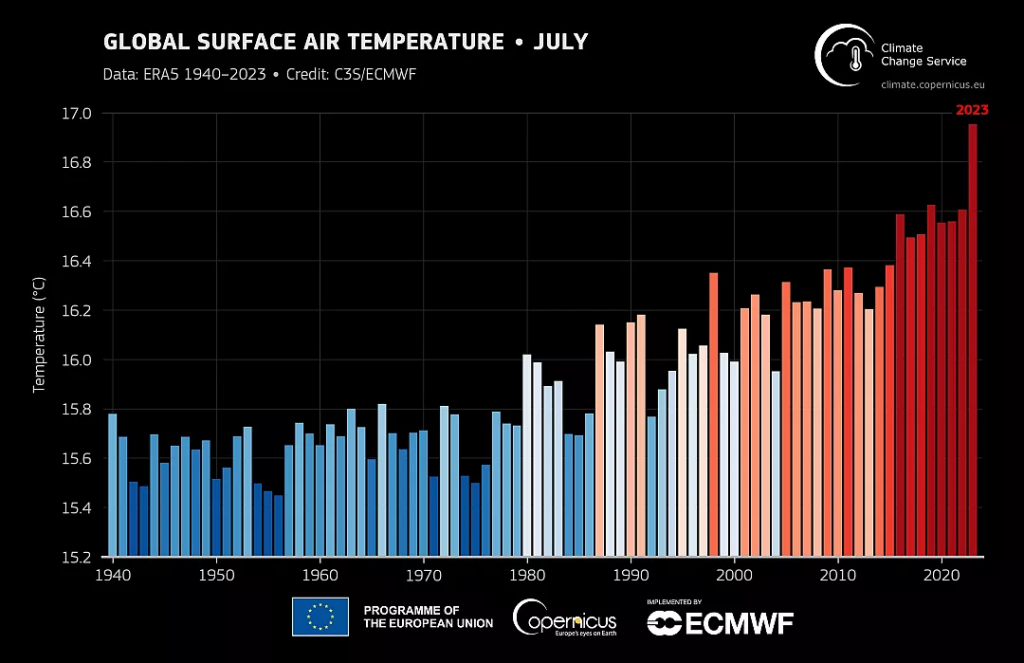July 2023 has etched its name as the hottest month ever recorded globally, with the Copernicus Climate Change Service (C3S) confirming this unsettling milestone.
With an average global temperature of 16.95 degrees Celsius, this July’s reading surpassed the previous record set 2019 by a significant margin of 0.33 degrees Celsius. The month was punctuated by blistering heatwaves that struck various parts of Europe, particularly driving temperatures beyond 40 degrees Celsius in countries like Greece, France, Italy, and Spain.
AAmid these soaring temperatures, Europe faced numerous challenges, including devastating wildfires that necessitated the evacuation of residents and tourists from Greek islands, such as Rhodes. Even South American countries experienced unusually high temperatures during their winter season, emphasizing the global scale of this climatic anomaly.

The implications of July’s scorching heat are profound. The C3S estimated that the month was approximately 1.5 degrees Celsius warmer than the average temperature from 1850 to 1900. Moreover, it stood 0.72 degrees Celsius above the average from 1991 to 2020.
Dr. Samantha Burgess, deputy director of C3S, underscored the gravity of the situation, remarking, “We just witnessed global air temperatures and global ocean surface temperatures set new records in July. These records have dire consequences for people and the planet exposed to ever more frequent and intense extreme events.”
Amidst these alarming trends, the condition of Antarctic sea ice also emerges as a cause for concern. Antarctic sea ice reached an all-time low this July, exhibiting less freezing than in any other winter since satellite observations commenced in 1979. Scientists caution that if greenhouse gas emissions continue unchecked, the resulting extreme weather patterns could inflict severe damage on Antarctic ecosystems, ultimately impacting the entire globe.

Dr. Burgess accentuated the urgency for action, noting that 2023 has ranked as the third warmest year so far, surpassing the recent average by 0.43 degrees Celsius. Additionally, July’s global temperature was an alarming 1.5 degrees Celsius above pre-industrial levels. These observations, she emphasized, underscore the pressing need for robust efforts to curtail global greenhouse gas emissions, which remain a primary driver behind these distressing records.

The need for immediate and substantial climate actions becomes increasingly evident as the world grapples with these exceptional heat levels. The urgency to address and mitigate the adverse effects of climate change takes center stage, as scientists and experts emphasize the interconnectivity between global ecosystems and the well-being of humanity.


